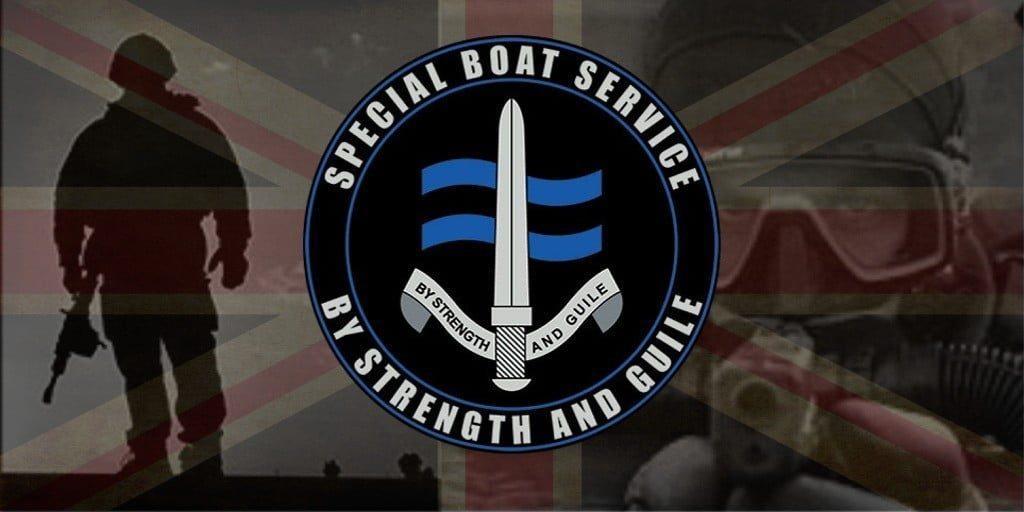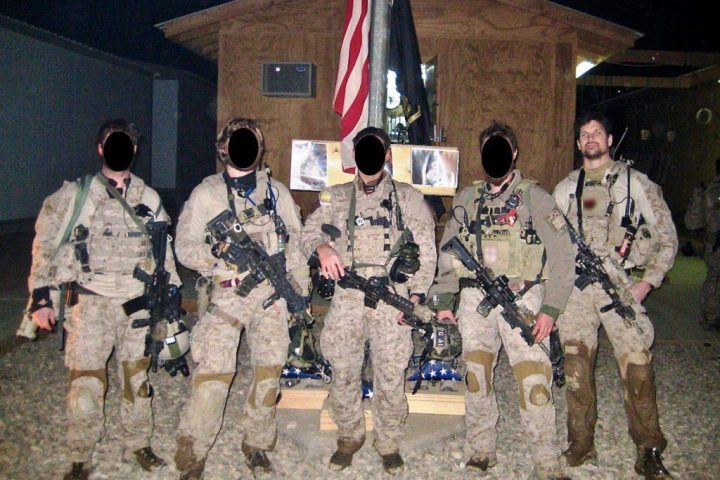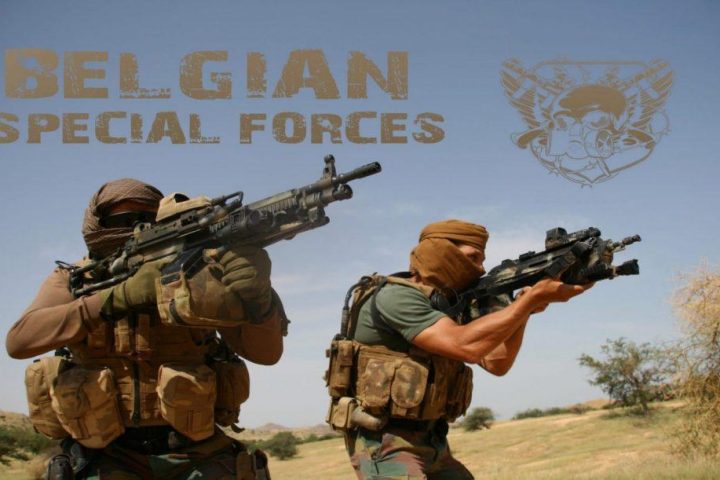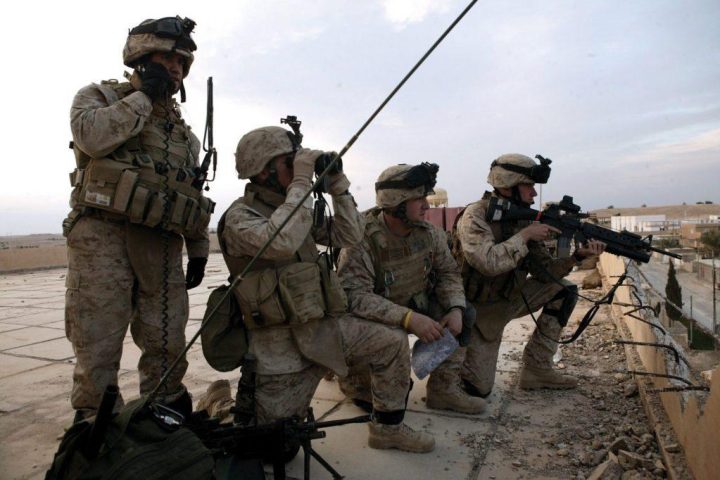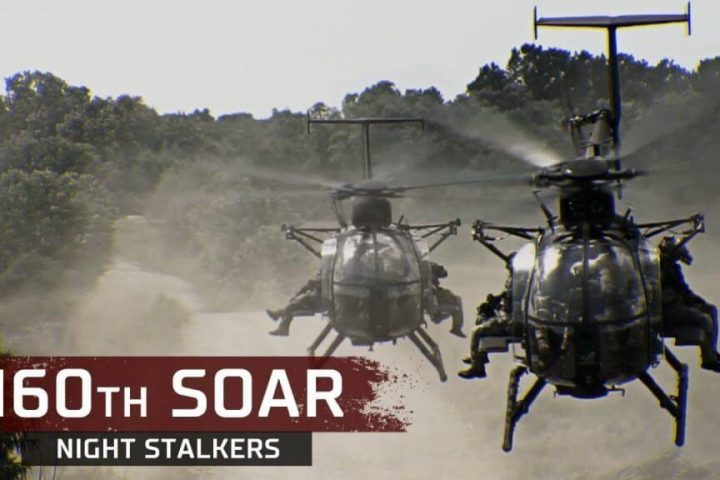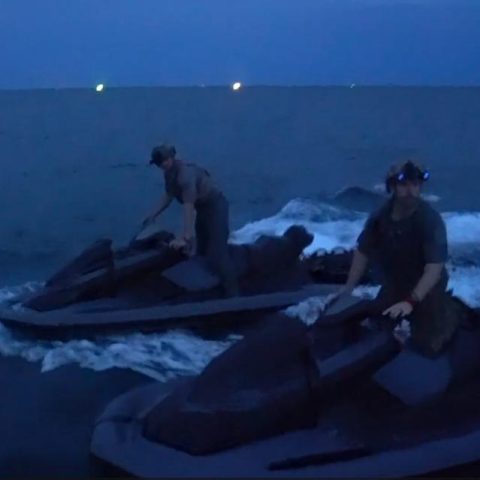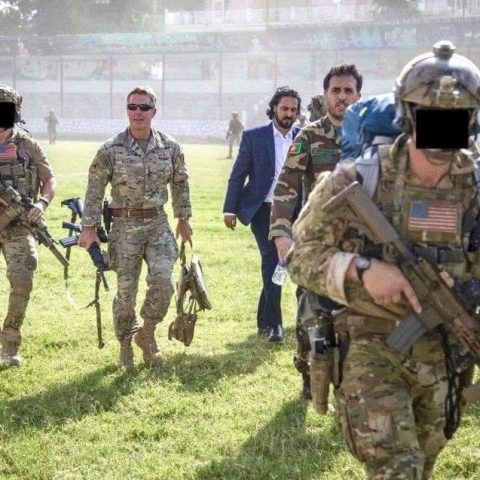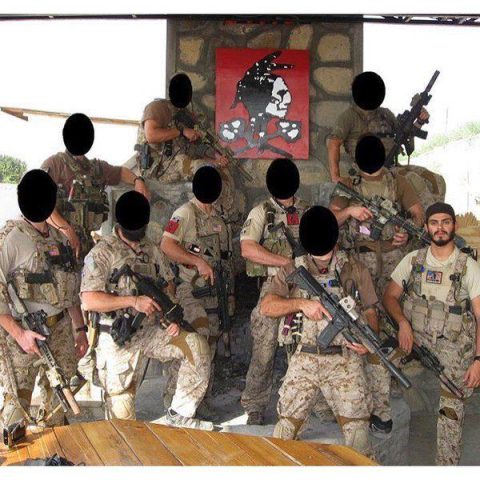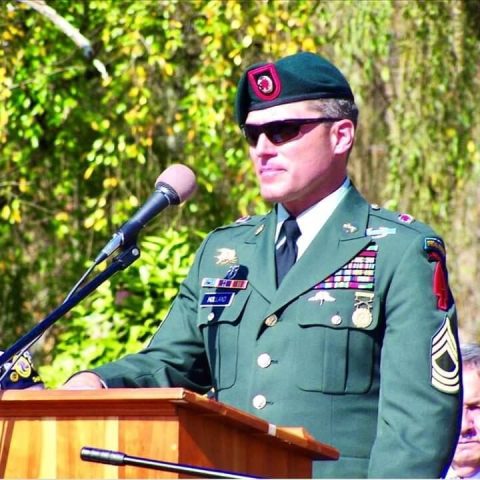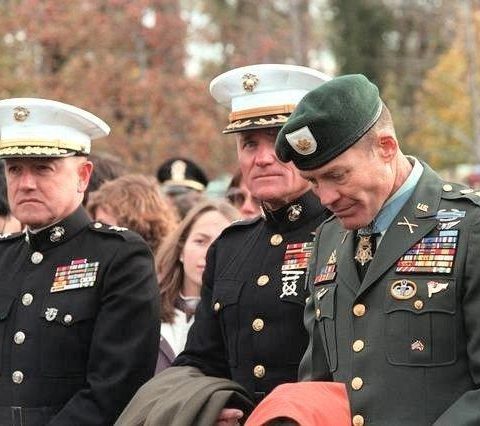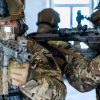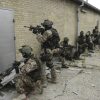Special Boat Service (SBS) is one of those units that you are probably heard about but still don’t know much about. In the world of special operations forces, they are considered one of the most lethal and most capable. They stand side by side with Special Air Service and other world’s Tier 1 units such as American SEAL Team 6 or 1st SFOD-D.
Introduction
Special Boat Service is the Special Forces Unit of the United Kingdom’s Royal Navy. They are operating under the United Kingdom Special Forces alongside the Special Air Service (SAS), Special Reconnaissance Regiment (SRR), and the Special Forces Support Group. The United Kingdom Special Forces are under the control of the Director of Special Forces (DSF).
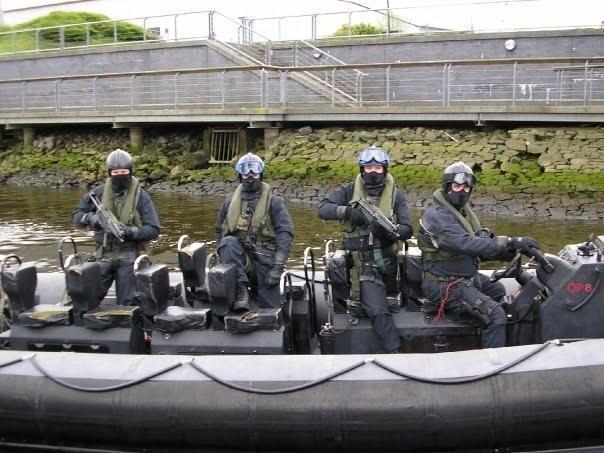
The veil of secrecy
Similar to the SAS, Most of the operations conducted by the SBS are highly classified and are rarely commented on by the British government or the Ministry of Defence due to their sensitive nature.
History
Throughout history, they were relatively unknown to the public. They were formed in 1940 as the Army Special Boat Section. Years following the Second World War, they operated under 22nd SAS as their amphibious troop, also referred to as Boat Troop. Until the Royal Navy formed its special forces and merged with the Army Special Boat Section.
During the time, the unit had several name changes – Special Boat Company was adopted in 1951 and re-designated as the Special Boat Squadron in 1974—until 28 July 1987, when the unit was renamed the Special Boat Service after assuming responsibility for maritime counter-terrorism.
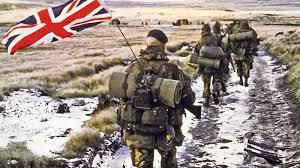
Despite its similarity to Special Air Service, it is an entirely different and independent unit described as the naval special forces of the United Kingdom and the sister unit of the already mentioned SAS. The operational capabilities of both units are broadly similar; however, the SBS (being the principal Royal Navy contribution to UKSF) has the additional training and equipment to lead in the maritime, amphibious, and riverine environments.
Organizational Structure
According to military sources, in 2020, the SBS numbers will be up to 300 operators. They are on standby at all times. In 1987, the unit was reformed along SAS lines, with 16-man troops instead of the traditional sections. The qualified SBS operators are known as Swimmer Canoeists. They are experts in swimming, diving, parachuting, navigation, demolition and reconnaissance.
There are four active squadrons and a reserve unit:
- C Squadron
- X Squadron
- Z Squadron
- M Squadron
- SBS Reserve or SBS(R) – provides individual reservists to augment the regular SBS rather than forming independent teams. Recruits need to be serving members of UK reserve forces, and a high level of commitment is required. The SBS(R) is based at various locations throughout the United Kingdom, but training is carried out in the South of England.
Selection and training
Both units come under the operational command of the HQ Directorate of Special Forces (DSF) and undergo an identical selection process, enjoying significant interoperability in training and operations.
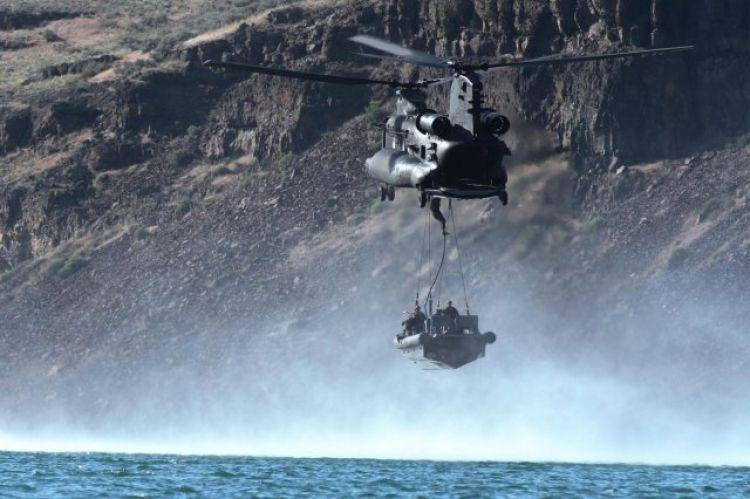
Selection
The SBS had its independent selection program to qualify as a Swimmer Canoeist. Still, its selection program has now been integrated into a joint UKSF selection alongside candidates for the Special Air Service. All members of the United Kingdom Armed Forces can be considered for special forces selection, but approximately 40% of all UK Special Forces are recruited from the Royal Marines.
There are two selections a year, one in winter and the other in summer, and all the instructors are full members of the Special Air Service Regiment. Before being accepted onto a UKSF Selection course, a candidate must complete a two-week Special Forces Briefing Course. The course tests the candidates’ physical fitness and observes their willingness to conduct water-borne operations.
Training
The UKSF course is broken down into two main parts, Selection and Continuation training.
Selection course (4 weeks)
The Aptitude Phase is designed to select those individuals who are suitable for special forces training. This phase lasts for four weeks.
Continuation training (23 weeks)
This part is divided into two phases:
- Tactics, Techniques, and Procedures (TTP) – 9 weeks
- Employment Training – 14 weeks
When accepted into an operational squadron, the candidates must complete the SBS Swimmer Canoeist Course, SC3 Course. The course lasts for several months and covers long-distance Dives, Swims, and Kayaks in the open sea, often in poor weather.
Underwater demolitions, Maritime counter-terrorism is also practised. On completing SBS, troopers will be put on one-year probation.
Reserve selection
For SBS(R) selection, only candidates with previous military experience are eligible to enlist. Training is carried out in the South of England, and candidates are required to complete the following tests over the four-day initial selection course:
- Combat Fitness Test (CFT) – 12.8 km (8 mi) carrying 25 kg (55 lb) within 1 hour 50 minutes
- Swim test – 500 m (1,600 ft) using any stroke in uniform and retrieve an object from 5 m (16 ft)
- Gym tests
- Advanced CFT 1 – 15 km (9.3 mi) carrying 25 kg (55 lb)
- Advanced CFT 2 – 24 km (15 mi) carrying 30 kg (66 lb)
Operational roles
The unit is responsible for operating in small parties in the enemy-controlled territory in case of armed conflict and war. Usually, these types of missions require excellent training, tactical awareness, and of course, courage and high morale of the operators.
They are tasked with various operations and missions, which include:
- Surveillance Reconnaissance (SR)
- Offensive Action (OA)
- Support and Influence (SI)
- Military Counter-Terrorism (CT)
- Maritime Counter-Terrorism (MCT)
Operations
Throughout history, the unit was involved in every conflict where the United Kingdom had its influence, from World War II up to the latest War on Terror. Today, they are engaged in war in Afghanistan, the Iraqi War, and unofficially in Syria and Libya, where they are tasked with various operations.
Also, they conduct every other operation in the domain of special operations if needed.
Since the SBS joined the UKSF Group in the 1980s, it has been restructured. Instead of one Squadron being tasked with a permanent role, the unit adopted the same system of squadron rotation as the SAS. Each Squadron rotates through counter-terrorism duties and conventional operations and tasking. For example, in December 2001, it was the C squadron who were on MCT Role and were called in to intercept the MV Nisha while M and Z Squadron were deployed in Afghanistan.
Significant operations in the 21st century
Sierra Leone
- Operation Barras (2000) – a hostage rescue operation
Afghanistan
- Battle of Tora Bora (2001) – operations in caves of Tora Bora (search for Bin Laden)
- Battle of Qala-i-Jangi (2001) – a prison revolt
- Operation Kindle (2006) – special forces deployment to Afghanistan
- The raid on Mullah Dadullah (2007)
- The raid on Taliban leader Mullah Abdul Matin (2008)
- Operation Diesel (2009) – a raid on a Taliban drug factory
- The rescue of Times journalist Stephen Farrell (2009)
- Succesful repealing of Taliban attack in Baghdad (2012)
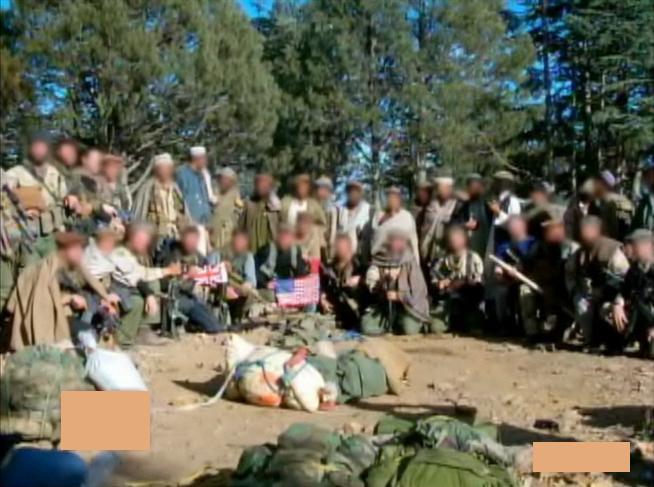
Iraq
Operation Marlborough (2005)
Lybia
- evacuation of 150 oil workers in three flights by RAF C-130 Hercules from an airfield near Zella to Valletta
Nigeria
On 8 March 2012, a small Special Boat Service (SBS) team attempted to rescue two hostages, Chris McManus (British) and Franco Lamolinara (Italian), being held in Nigeria by members of the Boko Haram terrorist organization loyal to al-Qaeda. The two hostages were killed before or during the rescue attempt. All the hostage-takers were reportedly killed.
Domestic Actions
On 21 December 2018, SBS personnel resolved a situation by storming the tanker Grande Tema where four stowaways hijacked the ship, demanding to enter the UK. On 25 October 2020, an oil tanker south-east of the Isle of Wight, suspected to have been hijacked by Nigerian stowaways, was stormed by the Special Boat Service. Seven people, believed to be Nigerians seeking UK asylum, were handed over to Hampshire Police.
Weaponry and gear
The Special Boat Service (SBS) generally uses the same weapons as its cousin, the Special Air Service. There is a wide variety of modern state-of-art weapons. As the sidearm, most operators use Glock 17, Glock 19, and SIG Sauer P226R. For assault rifles, they usually C8SFW, UCIW, Heckler & Koch G3, and Heckler & Koch G36. For submachine guns, they still use Heckler & Koch MP5 in various variants.
At their disposal, they have Hecker & Koch HK417 marksman rifle and Accuracy International Arctic Warfare. The shotgun used in SBS is Remington 870 12 gauge. They also use an SBS-specified weapon, an HK P11 pistol. It is an underwater pistol that shoots 7.62mm darts with a magazine capacity of 5 rounds. It’s not publicly known if the P11 has ever been fired in anger by the SBS.
Motto and headquarters
The Special Boat Service motto is ‘By Strength and Guile, ‘ which describes their personality. The unit headquarters is located in Poole, Dorset. One of their most publicly known members was a British hero, Major Anders Lassen, VC, MC, and two bars, who served as an SBS commander during the Second World War.


